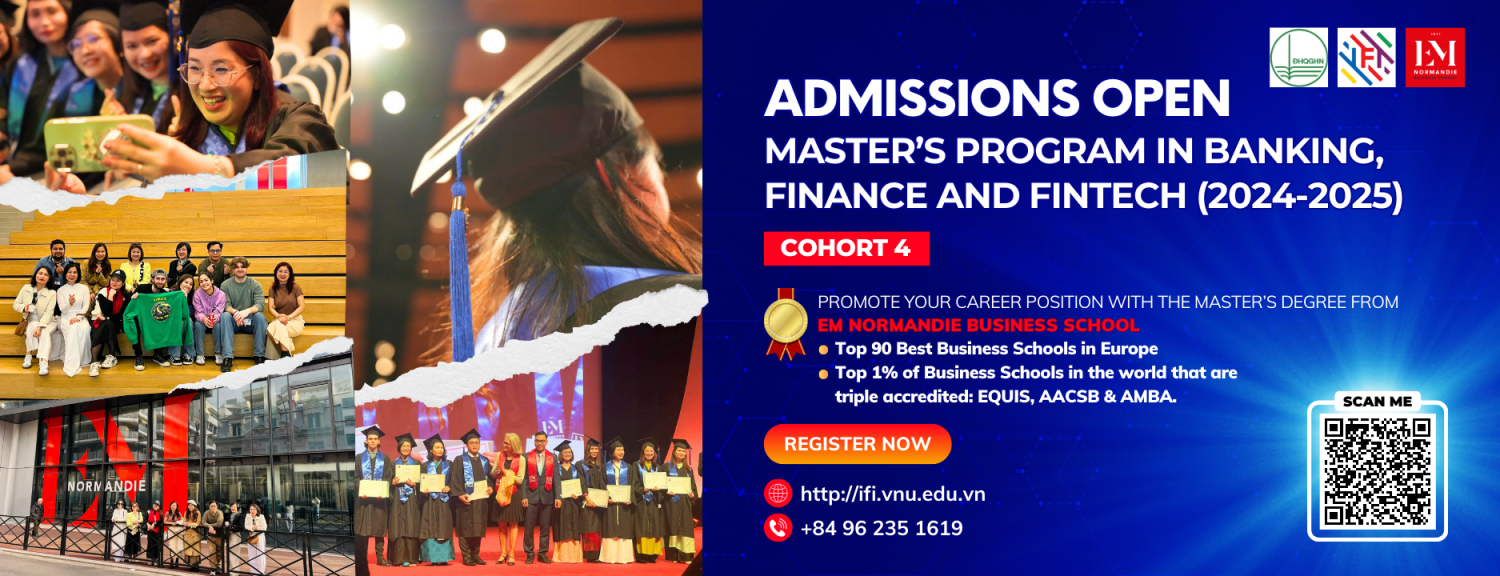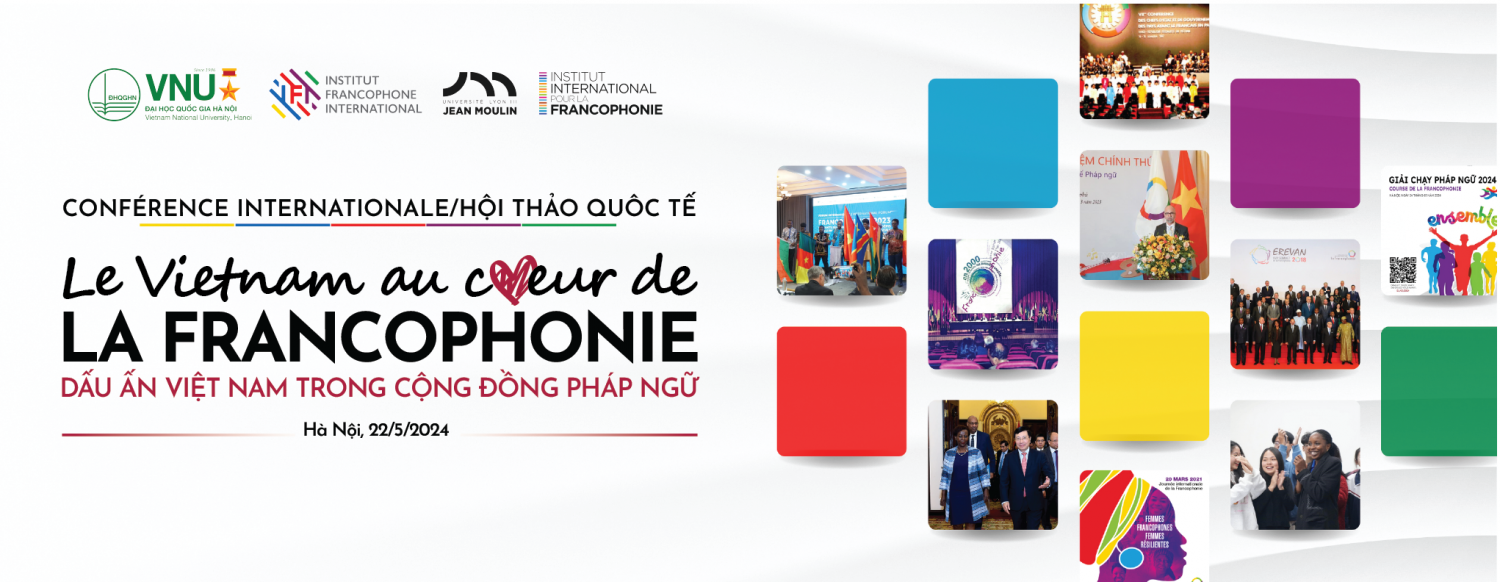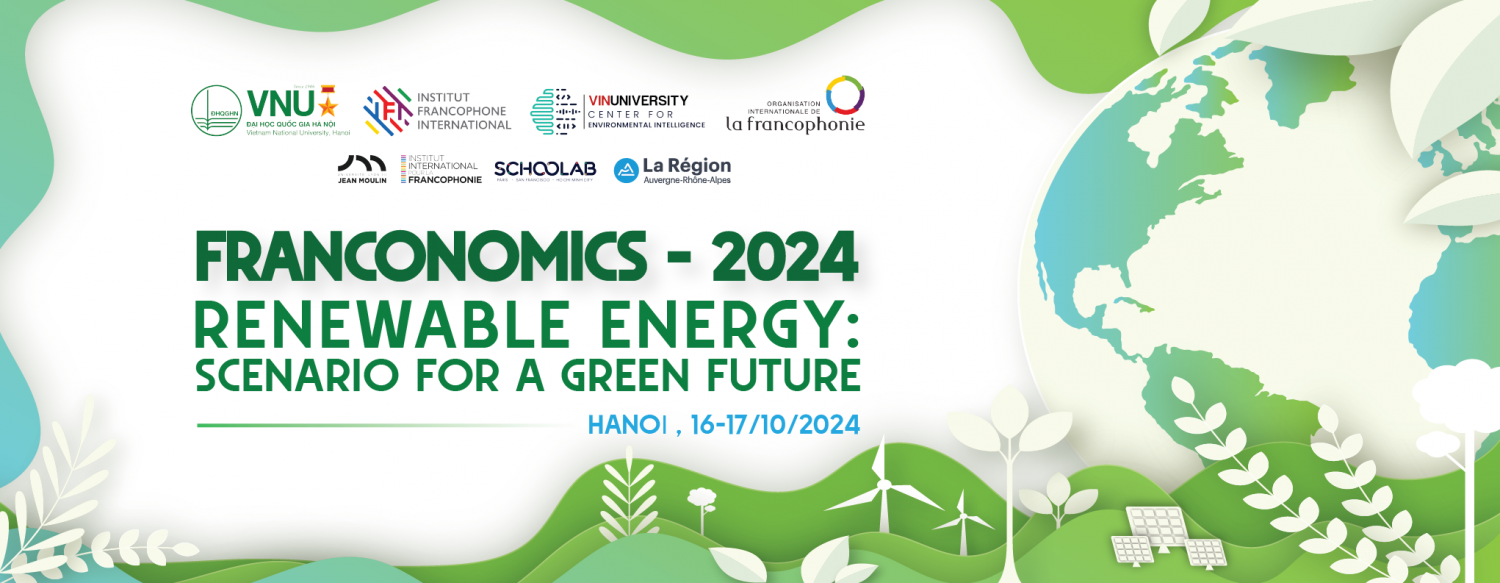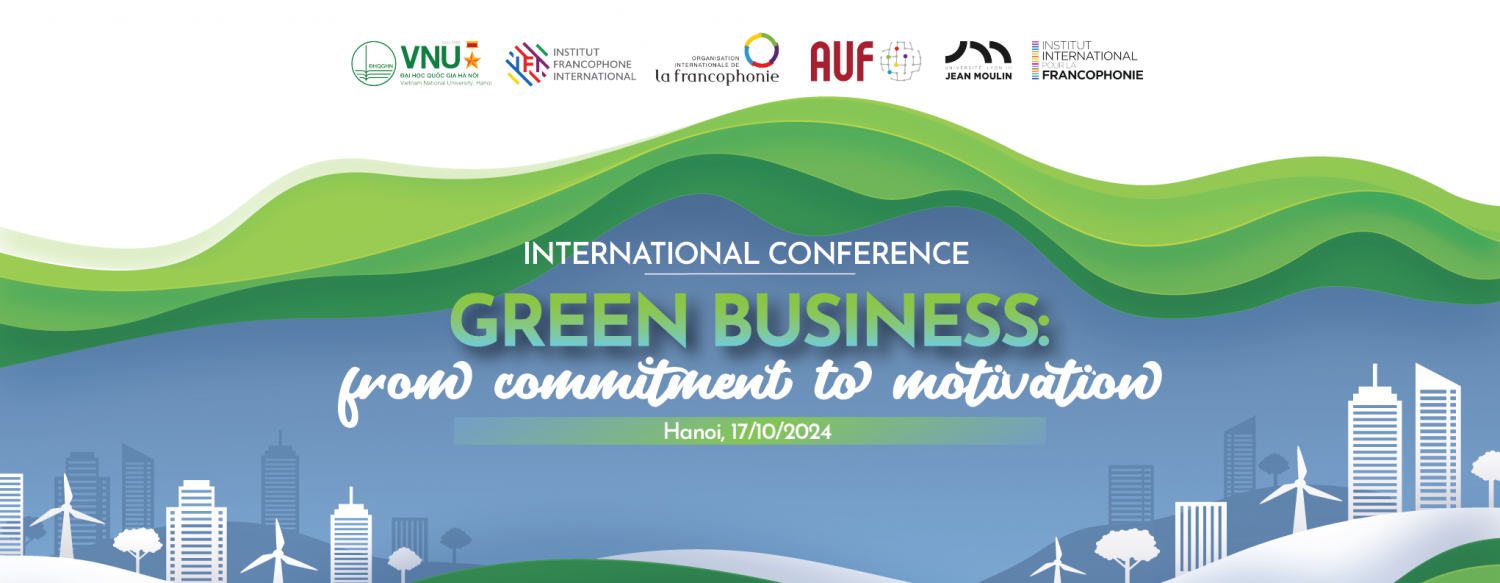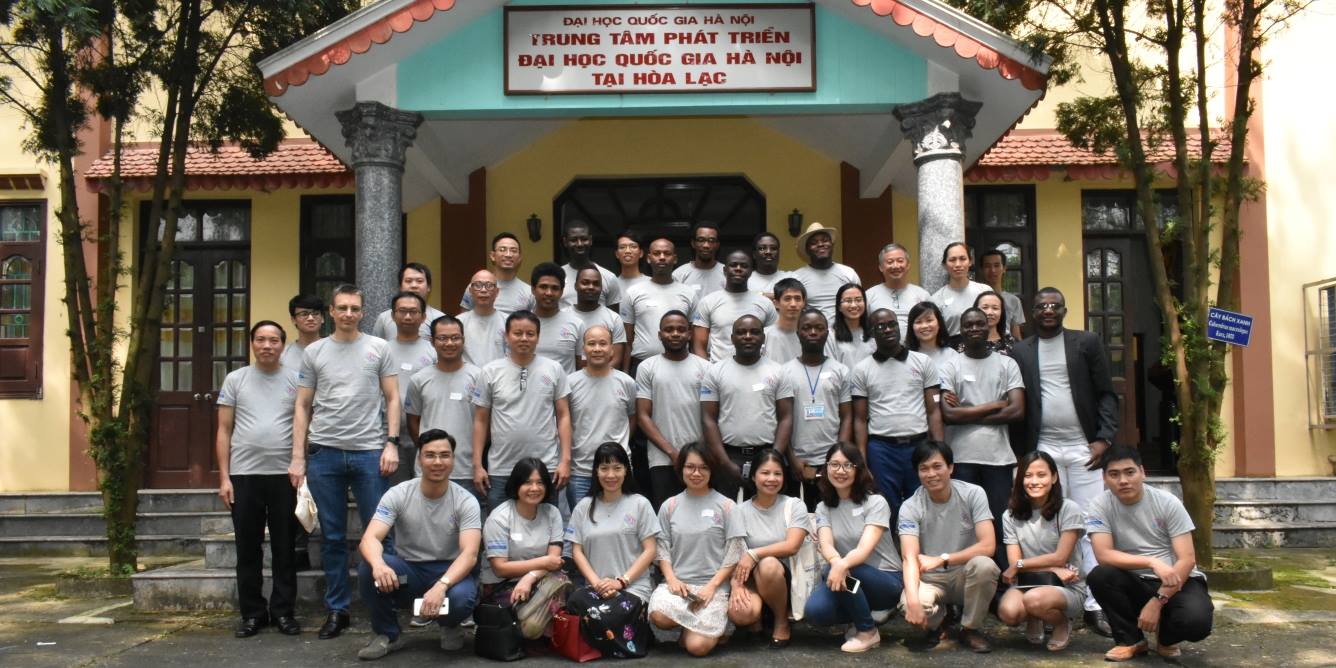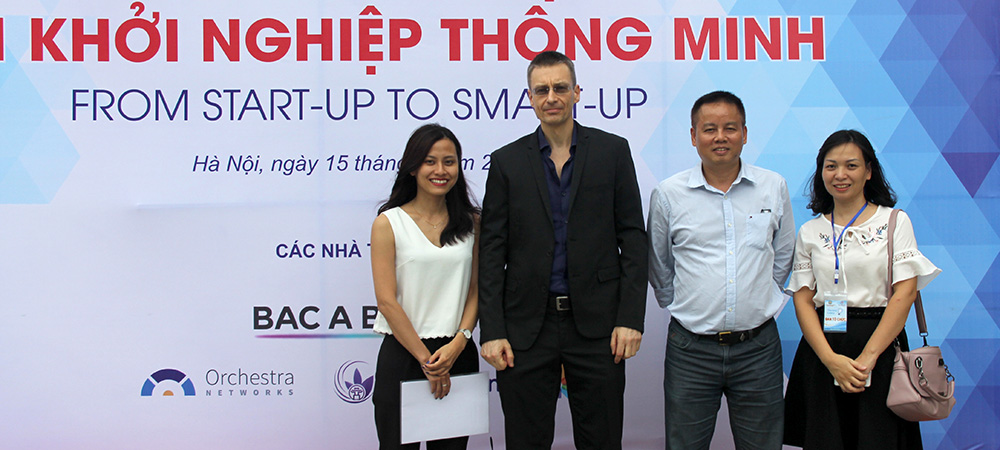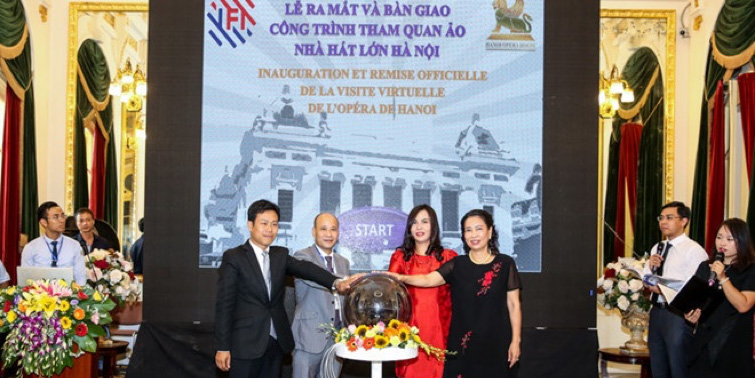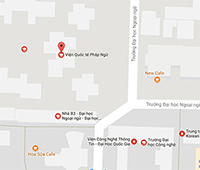International Conference "Higher Education 5.0: Innovation and Adaption for The Future"
FRIday - 29/03/2024 11:00The International Francophone Institute (IFI), Vietnam National University, Hanoi (VNU) would host the international conference "Higher Education 5.0: Innovation and Adaption for The Future" on August 21th, 2024 in Hanoi. This conference is a part of the interdisciplinary scientific conference series DAAS (Diderot Advanced Academic Seminars), which is initialized by International Francophone Institute and sponsored by Vietnam National University, Hanoi.
INTRODUCTION

The term "5.0" was first introduced in the Fifth Basic Plan for Science and Technology for 2016-2021 of the Cabinet of Japan announced on January 22, 2016. The human factor is placed at the center of development strategy for areas of concern such as society 5.0, economy 5.0, education 5.0 and government 5.0, of which digital technology constitutes a means of ensuring balance and harmony between overall the development and resolution of social problems.
The goal of education 5.0 in general and higher education 5.0 in particular indicates the training of high-quality human resources with the abilities of developing comprehensively, connecting closely with businesses, mastering the technology and well adapting to the current context of international competition.
Higher Education 5.0 also focuses on creating a flexible learning environment with the aid of digital tools that promotes more humane teaching methods, emphasizes on emotional development, reflects socio-economic reality and community-oriented way of thinking.
However, this initiative faces many challenges in ensuring the quality of education in the context where technology and cybersecurity issues dominate society, in preparing the infrastructure and teaching qualities of adapted to digital criteria cultural diversity and equal access to education, especially for vulnerable people.
The international conference "Higher education 5.0: innovation and adaptationfor the future" aims to:
- Clarify the concept of general and higher education 5.0;
- Evaluate the opportunities and challenges of the technological application in higher education as well as the global and Vietnamese development of Education 5.0;
- Propose policies to strengthen the link between universities and businesses, thus creating a learning and research environment that reflects reality and meets the needs of Society 5.0;
- Provide applicable recommendations to promote research, teaching, training and support interdisciplinary cooperation towards higher education 5.0.
CALL FOR PAPERS
For the purpose of discussing, sharing research results, experience, and academic profession regarding the role of Vietnam in the Francophonie community, the Organization Committee cordially invites scientists, researchers, specialists, lecturers, etc. to participate and contribute content to the conference. Quality papers would be posted in the DAAS-2024 Proceedings of Diderot Advanced Academic Seminars (number ISBN and ISSN 2734-9969), and outstanding papers will be published in the Francophonie in Asia-Pacific Science Publication on "La francophonie au Vietnam : créer, innover, entreprendre" (International ISBN and ISSN 2525-2488).
Topics of the article include but are not limited to the following:
- The education 5.0 and higher education 5.0;
- Opportunities and challenges of the technological application in higher education;
- The development methods of 5.0 education;
- Methods to strengthen the association between universities and businesses, thereby creating a learning and research environment that reflects reality, meeting the needs of society 5.0;
- Recommendations and specific recommendations to promote research, teaching, training and support for cross-sectoral cooperation towards education 5.0;
- Higher education 5.0 and in-house technology applications to improve learning and teaching processes in the 5.0 education model;
- Transformation of the learning environment in higher education 5.0 and teaching methods to reflect trends in education 5.0;
- Potentials and challenges, advantages and disadvantages in the process of implementing higher education 5.0 in the world in general and in Viet Nam in particular;
- The importance of international cooperation in higher education 5.0;
- Policies and regulations to support the development of higher education 5.0;
- The potentials of artificial intelligence in personalizing higher education;
- Effectiveness of the Quality Assurance and Evaluation System in Higher Education 5.0.
Deadline for submission of proposals and full text of the paper:
- Deadline for proposals submission: 15 May 2024
- Deadline for full text submission: 31 May 2024
Rules for the proposal and the full text of the thesis:
- Proposal (article title, name of subsection, keywords): no more than 500 words
- Full text (not including title, summary and keywords): no more than 5000 words
- The full text must be composed by .docx format, with no space, follow by author’s name, telephone number and working agency.
- Article form: The article is presented with font size 13, single line spacing, uses Times New Roman font. Justify: up 2 cm; down 2 cm; right 2 cm; left 3 cm. All pages, images, tables must be numbered clearly and precisely.
- Languages: Vietnamese, English, French.
Addresses and contacts for submission:
International Francophone Institute – Vietnam National University, Hanoi
Address: Room 109, E5 Building, Vietnam National University, Hanoi, 144 Xuan Thuy Street, Cau Giay, Hanoi
Contact point: 0243.745.0173 or 0976.181.193 (Ms. Ngọc)
Email: brain.ifi@vnu.edu.vn
Author: IFI-BRAIN
Newer articles
Older articles
News
- The Future of Banking Innovation: The Next Generation Core
- IFI Participated in the Career Orientation and Enrollment Consultation Day 2024
- Opening Ceremony of the Short-Term Software Tester Course (2023-2024)
- Workshop "Emotional Intelligence in the Workplace"
- IFI international students perform the song "Ms. Afrika Wakes Up" on the Vietnam Defense Television channel



